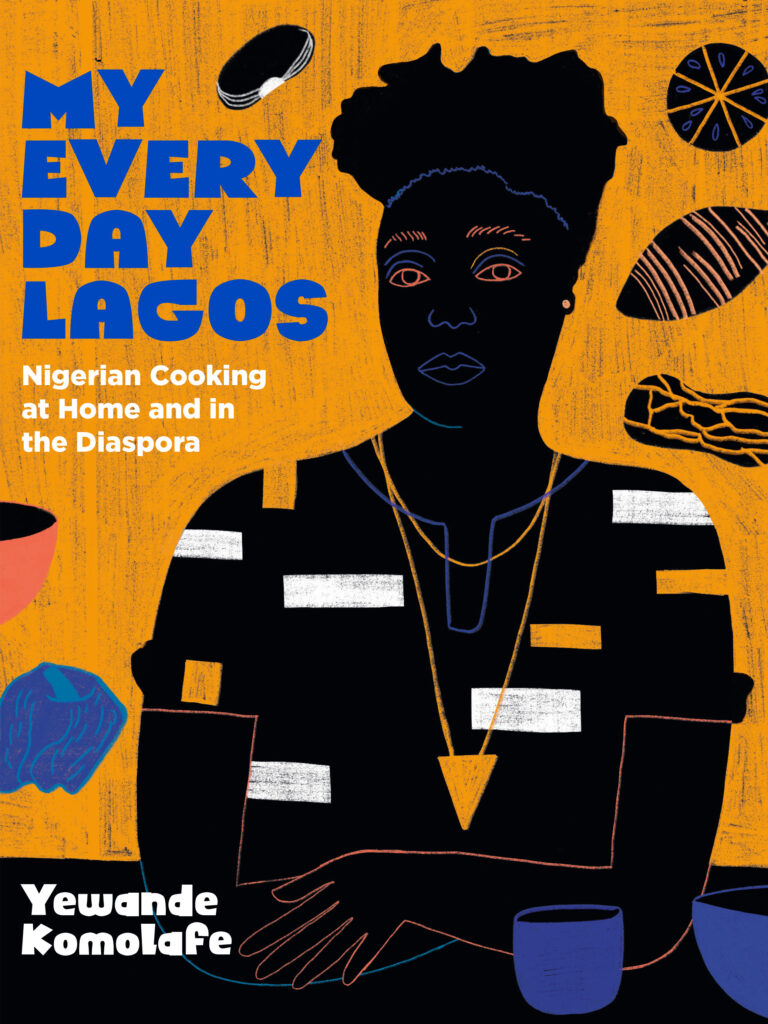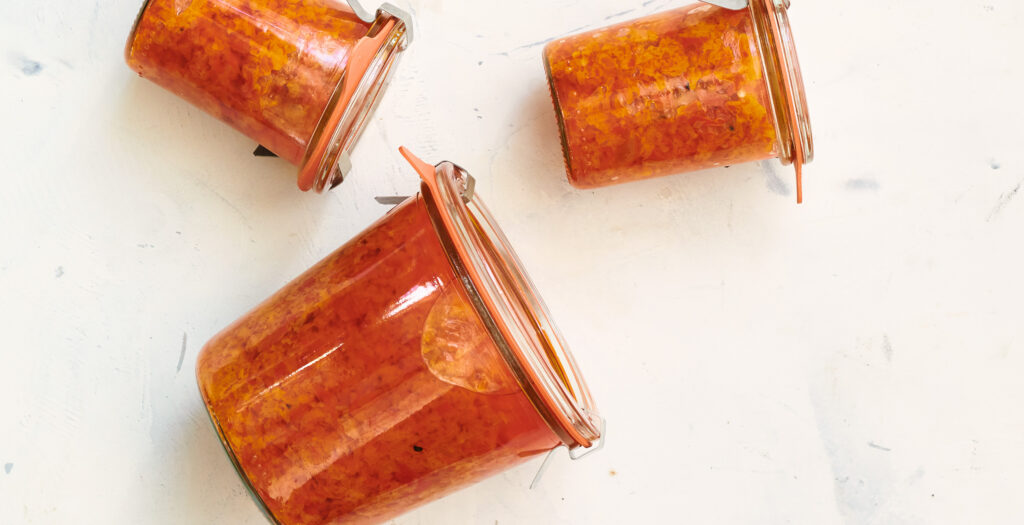Yewande Komolafe doesn’t feel the need to explain who she is to anyone. “Food is the way I explain myself,” she says—and it tells them everything they need to know.
In this way, The New York Times columnist’s new cookbook My Everyday Lagos: Nigerian Cooking at Home and in the Diaspora is like her manifesto. Born in Berlin to Nigerian parents, Komolafe’s first language was German. When she was two years old, she and her family moved back to Lagos, Nigeria, where she lived until 16 before moving to the United States.
“I don’t get lost in the question of authenticity, the question of if my cooking is authentically Nigerian,” she says. “For me, it’s a perfect variance, which is all of these wonderful and beautiful things. Cooking is an expression of me. It’s how I move through the world, especially in moments when my identity is in question.
Her cooking also pays proper homage to Nigeria’s vast flavors and techniques that have pushed culinary boundaries and continues to inspire global culinary movements. It’s a reminder that within Nigeria alone, there are more than 200 regional cultures and ethnic groups, all with their own food traditions.


In My Everyday Lagos, Komolafe dives into this history, mixing in a unique perspective that has shaped her relationship with the cuisine of her home country. It’s a natural extension to the work she was already doing—from exploring the influence of global diasporas through her New York Times monthly column to hosting her “My Immigrant Food is…” dinner series inviting family and her extended community to exchange recipes and stories centered on identity.
Just in time for the holidays, Komolafe shares a recipe for Ata Din Din with Sweet July, a staple sauce combining a caramelized relish of onions, red bell peppers, and Scotch bonnet chiles. “This pepper sauce is something I always have in my fridge and pairs perfectly with a variety of dishes, especially foods you make over the holidays,” says Komolafe. “It’s so versatile and can go on anything from roasted meats like turkey or can be used as a dipping sauce for roasted potatoes, veggies and so much more.”
Get Komolafe’s recipe below!

RECIPE:
Yewande Komolafe's Ata Din Din
Makes 2 cupsINGREDIENTS
2 cups Ata Gígé (see recipe below)
1 cup canola or other neutral oil such as grapeseed or safflower
Fine salt to taste
For Ata Gígé
2 medium red bell peppers, stemmed and seeded
1 medium red onion, roughly chopped
4 garlic cloves
1-inch piece of ginger, peeled and chopped
1 red Scotch bonnet pepper
INSTRUCTIONS
- For ata gígé: Working in batches if necessary, combine the bell peppers, onion, garlic, ginger, and Scotch bonnet peppers in a food processor or blender and pulse to a coarse puree. Ata gígé can be stored in a sealed container for up to a week in the refrigerator or up to a month in the freezer.
Pour the ata gígé into a shallow medium saucepan and bring to a simmer over medium heat. Cover and let simmer until the peppers and onions have softened, and released their liquid, 18 to 20 minutes. Pour in the oil and cook further, stirring frequently, until the sauce thickens and looks separated, about 15 minutes. Season with salt to taste.







